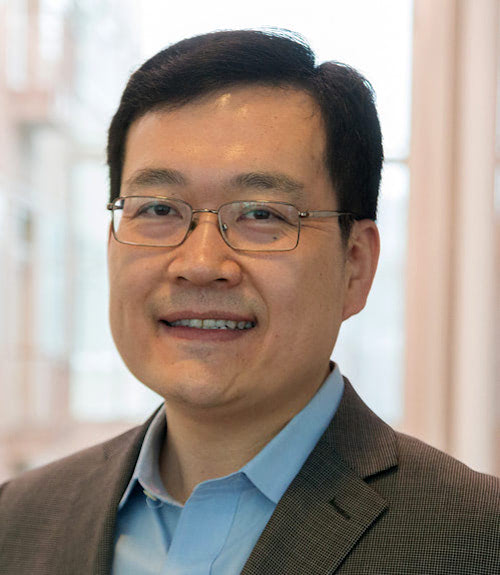- Undergraduate
Bachelor's Degrees
Bachelor of ArtsBachelor of EngineeringPartner School Dual-DegreeUndergraduate AdmissionsUndergraduate Experience
- Graduate
Doctoral Degrees
Doctor of PhilosophyPhD Innovation ProgramDoctor of Medicine-PhDGraduate AdmissionsGraduate Experience
- Research
- Entrepreneurship
- Community
- About
-
All Thayer News
John Zhang Accepts Temporary Position with NSF
Sep 14, 2020 | by Julie Bonette
Dartmouth engineering professor John Zhang has accepted a temporary Intergovernmental Personnel Act (IPA) appointment at the National Science Foundation (NSF). He will serve as Program Director in the Electrical, Communications and Cyber Systems (ECCS) division, with emphasis on micro-, nano-, and bio-systems.
“I feel excited to join NSF to help lead the effort of advancing scientific frontiers, ensuring accessibility to new discoveries, and securing global leadership in critical areas, such as smart health and biomedical devices, in the era of artificial intelligence and energy-efficient designs,” said Zhang. “I also wish to be an ambassador for Dartmouth engineering to our broader community, and to bring back what I learn to better serve the mission of our institution.”
At NSF, Zhang will help chart the research direction and strategies for future systems-on-a-chip, biological diagnostics, sensors, actuators, nanofabrication and human-machine interfaces for precision healthcare, wearable and implantable sensing and imaging systems, personalized health sensing systems, and data-enabled sensing systems. During his IPA appointment, which typically lasts approximately three years, Zhang will be primarily focused on his work at NSF, but retains his status as a member of the Dartmouth faculty.
“We are at a critical time when it is probably more important than ever to refocus on the fundamental science and engineering research for the future of the United States. Through this IPA assignment, John will join NSF ECCS to lead a highly innovative and collaborative community that provides an excellent framework for innovative research in device technologies, communication, circuitry and sensing, and energy and networks,” said Dartmouth engineering Dean Alexis Abramson, who herself held an IPA assignment earlier in her career. “I am confident that John will be a high-impact contributor at NSF and a great ambassador for Dartmouth.”
Zhang has developed miniature medical systems to improve global health through innovations in bio-inspired nanomaterials, lab-on-chip design, and advanced nanofabrication technologies for probing complex biological networks critical to human development and diseases such as cancer; and multi-scale modeling of the underlining fundamental force, flow, and energy processes.
He received his BS from Shanghai Jiao-Tong University, his MS in electrical engineering from the University of Maine at Orono, and his PhD in electrical engineering from Stanford University. Before joining Thayer School of Engineering at Dartmouth, he was a research scientist at the Massachusetts Institute of Technology (MIT) and a tenured faculty member at the University of Texas at Austin.
Throughout his career, Zhang has received prestigious honors such as the Wallace Coulter Foundation Early Career Award, NSF CAREER award, DARPA Young Faculty Award, and the National Institute of Health’s (NIH) Director’s Transformative Research Award. He has published over 280 peer reviewed papers and proceedings, presented over 70 invited seminars worldwide, and filed over 50 domestic and international patents.
He is a Fellow of the American Institute for Medical and Biological Engineering (AIMBE), an alumnus of National Academy of Engineering’s (NAE) Frontiers of Engineering program, and has published a biomedical engineering textbook for undergraduates.
For contacts and other media information visit our Media Resources page.

